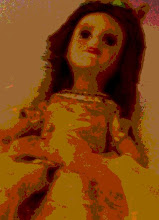Names are always an interesting challenge with fiction writing, complicated by modern naming practices (I named a character Mandy, thinking it an old-fashioned name, Amanda, but got many people telling me it was not only in common use (about half a generation later than myself) but had a character type in movies, not the association I wanted for a medieval peasant. I like period names, but peasant names aren't well documented, (unlike noble and educated names for which I have many lists to refer to and sometimes use, especially for minor side characters).
E-ships adds an extra measure of complication. SF allows a wide range of possibilities, but also interesting challenges: how do you name a ship with sufficient character to need nick names and unique references? And how do you have space-associated names without being trite (Andromeda has to go, I know, but I haven't settled on a replacement. Eventually I'll do a global replace for the full name and the nick name(s).) I've also named spacial phenomenon (much as planet bound travelers use rivers, interchanges, and other geomarkers as reference for where they go, but also giving names to the phenomenon type that I either made up or don't know a scientific name for), and had to create a pseudo military ranking system (The forces aren't exactly military... but police use ranks, too.)
That leads to another issue of naming - titles and ranks add not-always-desirable length to "full names" and another reference on top of names, nick names, and in this case ship identities. Many characters would appropriately use ranks as much as names so I tend to abbreviate, but I can't use the classic rule in non fiction writing - once spelled out, abbreviate. Readers unfamiliar with even common ranks (lieutenant) are not going to be comfortable with alien variations, so I try to spell out periodically, such as at the start of scenes or chapters. Knowing the right rate of use though... I hope an editor has a handle on it, and doesn't mind if my original pacing isn't quite what they have in mind for the final published version...
How do you handle naming?
Tuesday, January 4, 2011
Sunday, January 2, 2011
short scenes and problem detection
I am always concerned about short scenes, especially when I have several in a row as in my last posting for E-ships. For one, I usually suspect that they are not complete scenes in themselves. For another, I like them to be more clearly stand-alone. The number symbols help, but when they are published, it's often just a line space separation and it has to be clear with the words that the reader has gone from one scene to another, one time to another, one place to another. Otherwise, the bit of dialog should probably be part of a more substantial scene, to incorporate that clarity. It is possible to get all the elements of a scene into a short space, but on rewrite, I will exam short scenes especially closely, and often find that they are missing a key element, such as clarity of character, mood, setting, or change/story progress. In many cases, they hardly achieve one much less all of the needed elements, though the rest were clear in my mind. Getting the writer's image to the reader though... always the ultimate challenge.
The reader may also have noticed that I'm missing some character and place names. I have a name for the chief of the ground crew, but have to look it up and forgot to put it in my list of characters, so that looking it up means scanning a lot of text to find it. The place name I don't have yet, and haven't decided even whether I need a place name or a better topic of discussion. Places that have no role in the story... usually that means the whole reference to them adds nothing to the story and needs to be replaced or dropped. Enough topics within the story are worthy of expansion that every single sentence and every phrase in a dialog can and should add depth, not irrelevancies, even if the reason for using it in a given scene is separate from the content, a means of conveying the nature of the relationship between characters, the nature of the business they are in, or some other element of the culture.
The reader may also have noticed that I'm missing some character and place names. I have a name for the chief of the ground crew, but have to look it up and forgot to put it in my list of characters, so that looking it up means scanning a lot of text to find it. The place name I don't have yet, and haven't decided even whether I need a place name or a better topic of discussion. Places that have no role in the story... usually that means the whole reference to them adds nothing to the story and needs to be replaced or dropped. Enough topics within the story are worthy of expansion that every single sentence and every phrase in a dialog can and should add depth, not irrelevancies, even if the reason for using it in a given scene is separate from the content, a means of conveying the nature of the relationship between characters, the nature of the business they are in, or some other element of the culture.
Subscribe to:
Posts (Atom)
